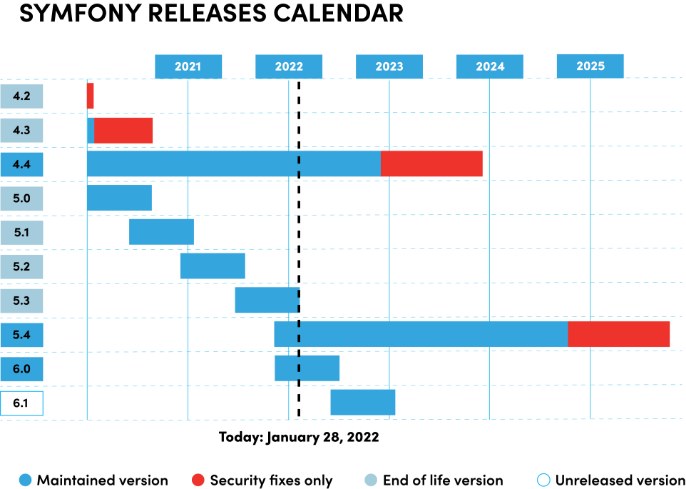Drupal 9 is here!
Story by Alex Augustyniak
|
5 min read
Psst! Just a quick side note: we have a more up-to-date blog post covering the release of Drupal 10 where we unpack the new features that came with this version and tackle some essential questions you should consider before choosing Drupal for your project. Head over to our "Drupal 10.0 CMS in 2023" blog post to get all the details on this release!
The latest Drupal release has been introduced. The 9th version of this popular CMS has been available since June 3rd, and we’ve had plenty of time to play around with it. This article is going to focus on what the big changes are, and what you need to prepare for.
Quite recently we’ve switched from Drupal 7 to Drupal 8. Remember? It wasn’t exactly an easy and quick operation. Changes turned out to be significant enough to require almost everything to be rebuilt from the ground up. What this meant was long working hours, lots of patches, and nerves. Are we in for a repeat?
Updates never were Drupal’s forte. Usually, they were kept small and manageable. This time, however, Drupal decided to take some weight off developers’ backs and tried to simplify the process as much as possible.
New editorial cycle
A new attitude towards software development has been introduced in the 9th release. Previously changes meant a significant probability of compatibility issues with some of the modules, plugins, or skins. Drupal's creator - Dries Buytaert’s philosophy of eliminating backward compatibility must have influenced this decision.
As he admitted in his manifesto - the goal was to keep following technological progress, in order to force developers to leave their “technological baggage”, which he felt negatively impacted their web projects.
It doesn't get any more complex than that. If you start dragging baggage along, your product will, eventually, be replaced by something that offers the same functionality but without the baggage. Something that is faster, smaller, cleaner and on the bleeding-edge of technology. Unfortunately, only those with a long-term interest or vision tend to care about this. End-users with sites to upgrade are challenged by a different set of problems, like a Friday night deadline. They are extremely short-sighted, and rightly so.
Dries Buytaer
Drupal's Author
In practice, this means a bi-annual release life cycle. You will be able to introduce new functions and updates to your projects more easily.
What’s new in Drupal 9?
Does your website still rely on older Drupal versions (6 and 7)? As a company, finding yourself in such a situation can be daunting as it means lots of effort and work lies ahead of you. But fear not! At Direktpoint we love a good old challenge and we have enough knowledge and experience to help your company overcome this problem. Don't hesitate to reach out to us and rest assured that your problem lies in the hands of experts.
If, however, you're already using Drupal 8, we have some great news for you! You will be pleased to know that this time around there will be no need for spending a ridiculously large amount of time on meticulous code review. The 9th iteration of this CMS is mostly built on the foundation of the previous release, with most of the changes being the removal of old, outdated code. What this means is that this new 9th edition is actually a “slimmed-down” version of Drupal 8, as the system’s developers claim.
The latest Drupal is based on the newest versions of the Symphony’s 4th and 5th frameworks. Official support for the previous version 3.4 ends near the end of November 2021, and safety patches are scheduled only up to November 2022. You can read more about this on the official Symphony website.
Drupal’s new release system allows you to integrate new Symfony releases in a matter of a month, instead of half a year (June and December updates). This is a huge step in the right direction.
And let's not forget about the latest release of Twig - the 2.0 version. The updated version of this theme engine makes working with themes much more manageable.
Drupal 9 requires PHP version 7.3 (or newer). This allowed developers to significantly improve the CMS processing speed. Simply put - your website will load faster. How much faster? You can see the difference between PHP versions using PHP Benchmarks.

Easy update
At this point, you have probably decided that it is high time for an update! If you are updating from Drupal 8 the whole process can be automated and painless. Assuming that during the initial development, you ensured everything works correctly and is in line with the Drupal 8 guidelines you’re most likely just a few clicks away from being up to date.
Start by updating to the latest Drupal 8 version and make sure that none of the modules used on your website contain outdated code. To do this you can use the Drupal-check tool to identify what needs attention.
All that remains after that is to update the CMS as usual, and you’re done!
Summary
Our recommendation? Switch to Drupal 9 ASAP. Need assistance? Our team of experts is here to help! Don't hesitate to reach out to us if you have any questions.
In conclusion, the new Drupal is simply better than its predecessors. If your website does not rely on any out-of-date modules, there’s no reason to remain either in Drupal 7 or 8. Remember - both of those projects are only supported up to November 2021. Don’t count on any security patches or new add-ons past that date.

